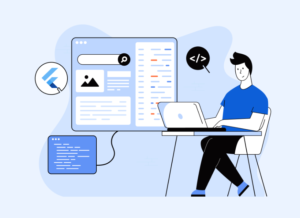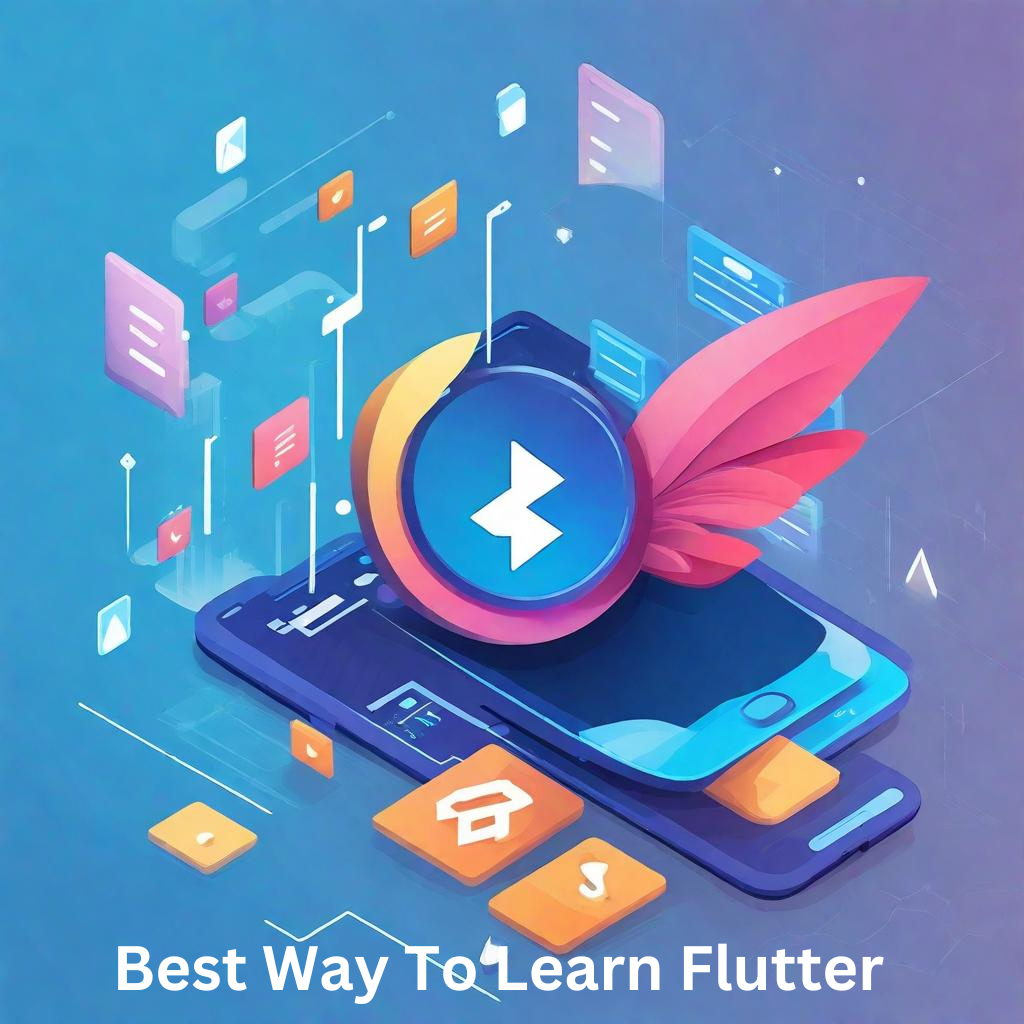9 Little-Known Factors That Could Affect Your Best Way To Learn Flutter
Are you ready to embark on a Flutter app development journey, but uncertain about the best way to learn it? Flutter, Google’s UI toolkit, has gained immense popularity for building natively compiled applications for mobile, web, and desktop from a single codebase. However, the path to mastering Flutter involves several factors that could influence your learning experience.
In this comprehensive guide, we’ll delve into the little-known factors that play a crucial role in determining the best way to learn Flutter. Whether you’re a beginner with no coding background or an experienced developer looking to add Flutter to your skill set, understanding these nuances can significantly impact your journey.
Here are Various Best Ways To Learn Flutter:
The Right Course:
Choosing the right course is paramount when learning Flutter. With the plethora of options available, it’s essential to opt for a course that caters to your skill level. For beginners, courses that start from scratch and gradually build up complexity are ideal. On the other hand, experienced developers may benefit from more advanced courses focusing on Flutter’s unique features.
Practical Experience Matters:
Learning Flutter is not just about theoretical knowledge but also hands-on experience. A common mistake is to rely solely on tutorials and courses without dedicating time to practical application. Real-world projects, even small ones like a Hangman game or a calculator app, can significantly reinforce your understanding of Flutter concepts.
Background and Learning Time:
Your coding background and the time you can dedicate to learning Flutter are critical factors. Beginners with no coding experience might need more time to grasp programming concepts, while those with a coding background may progress faster. Assess your available time and set realistic learning goals to avoid feeling overwhelmed.

Flutter App Development Cost:
Understanding the cost associated with Flutter app development is crucial, especially if you plan to develop projects professionally. Flutter’s popularity stems from its cross-platform capabilities, allowing you to build apps for both Android and iOS with a single codebase. However, different factors contribute to the overall cost, including the complexity of your app, the features required, and the expertise of the developers.
Charging Structure:
Let’s break down the charges involved in Flutter app development:
- Basic Apps ($5,000 – $20,000): Simple applications with standard features fall into this category. These are often small businesses or informational apps.
- Medium Complexity Apps ($20,000 – $50,000): Apps with more advanced features, custom UI components, and integration with external APIs fall into this range.
- Complex Apps (Above $50,000): High-end applications with intricate designs, complex functionalities, and extensive backend integration fall into this category. Examples include social networking apps or e-commerce platforms.
It’s essential to note that these are rough estimates, and the actual cost may vary based on specific project requirements.
Choosing the Right Project:
Your choice of a Flutter-based project can significantly impact your learning journey. Instead of relying solely on tutorials, consider taking on your projects. Building something you’re passionate about or a project that solves a real-world problem can keep you motivated and engaged throughout the learning process.
Networking and Communities:
Learning Flutter is not a solitary journey. Engaging with the Flutter community can provide valuable insights, tips, and support. Platforms like Flutter. dev, Medium.com, and YouTube host a plethora of tutorials, articles, and discussions. Joining forums and attending workshops can connect you with like-minded learners and professionals, fostering a collaborative learning environment.
Flutter Features and Widgets:
Understanding Flutter’s features and widgets is fundamental to becoming proficient in app development. Flutter’s UI is built using widgets, and a deep understanding of these elements is crucial for creating visually appealing and functional applications. Invest time in mastering widgets and exploring Flutter’s rich set of features to unleash the full potential of the framework.
Continuous Learning:
Flutter, like any technology, is continually evolving. Stay updated with the latest releases, features, and best practices. Follow Flutter-related blogs, participate in online forums, and attend webinars to ensure your skills remain relevant in the ever-changing landscape of app development.
Frequently Asked Questions (FAQs)
Q1: How long does it take to learn Flutter for beginners?
A: The learning time varies based on your coding background and the time you can dedicate. On average, beginners might take a few months to gain proficiency.
Q2: Do I need a strong computer science background to learn Flutter?
A: While it helps, Flutter is designed to be accessible to learners with varying backgrounds. Dedication and practice are key.
Q3: Can I develop apps for both Android and iOS using Flutter?
A: Yes, Flutter’s cross-platform capabilities allow you to create apps for both Android and iOS from a single codebase.
Q4: Are there any free resources for learning Flutter?
A: Yes, platforms like Flutter.dev, Medium.com, and YouTube offer a wealth of free tutorials and articles.
Q5: What is the importance of practical experience in learning Flutter?
A: Practical experience is crucial for reinforcing theoretical knowledge. Building real-world projects enhances your understanding of Flutter concepts.
In conclusion, mastering Flutter requires a strategic approach, continuous learning, and hands-on experience. Consider these factors, set realistic goals, and embrace the vibrant Flutter community to make the most of your Flutter app development journey. Happy coding!

